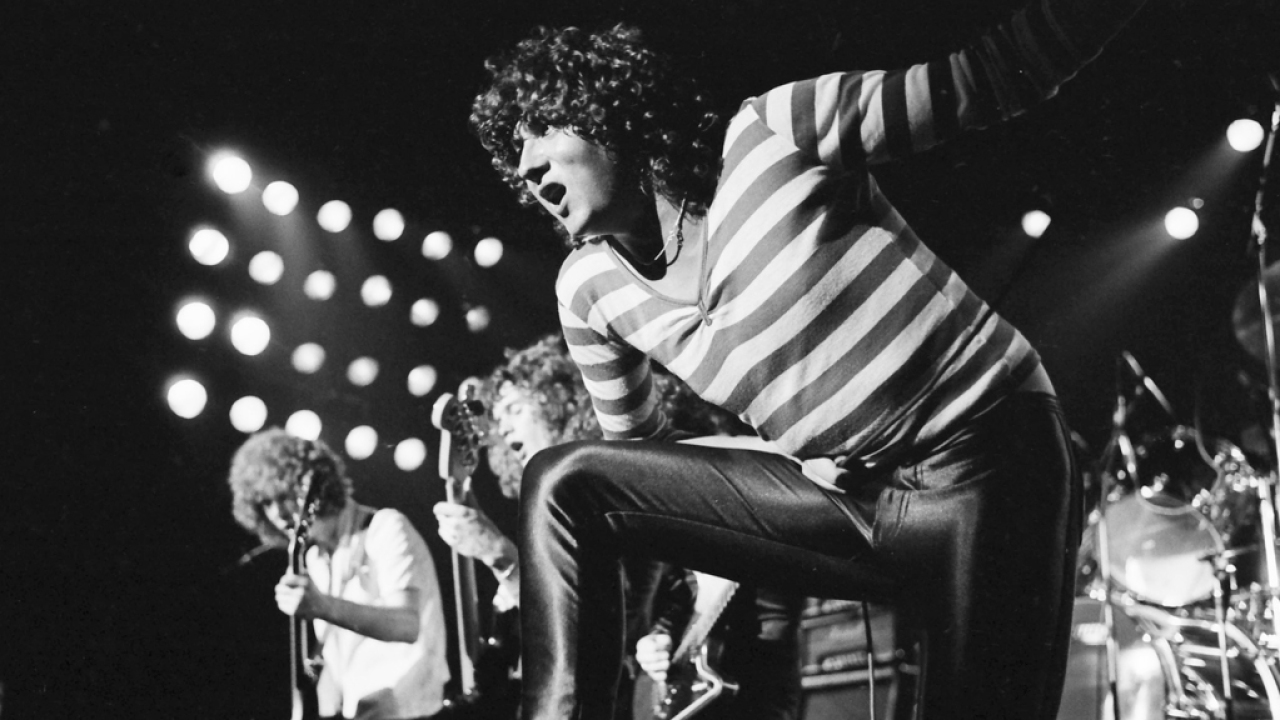Scott Holiday: At the age of nine or ten, I was rummaging through my parents’ vinyl and cassettes, and I came across an album with a really cool spaceship cover.
I popped on the headphones and had my first listen to ELO’s Out Of The Blue. I was hooked from the first section of Turn To Stone. It was a sound I’d never heard before, but strangely familiar.
There was something different and special about ELO in the way they attained a new, futuristic sound while embodying the heritage and spirit of the past. They were one of the best acts ever to incorporate rock’n’roll, pop and classic music. But even though their music was large and detailed, with piano, string ensembles and vocoder harmonies, you’re still able to recognise a simple song inside the mega-production.
But the feeling I always get from them, when you listen to them and look at the album covers, was that they had come from outer space with a new sound. ELO were something from the future.
Def Leppard
Ambition? Sure. Cockiness? In spades. Songs? Well, they wouldn’t have gotten where they did without them. Def Leppard were always the most obvious candidates to break out of the parochial NWOBHM scene. And break out they did. Overcoming an early backlash centred on their American aspirations (read: British band gets too big for their boots), they went on to own the 80s, first with 1983’s multi-platinum Pyromania and again with the multi-multi-platinum Hysteria. But it’s not just what they did, it’s also how they did it. Before Leppard, hard rock was earthy, sweaty and clad head-to-toe in denim. Afterwards it was bright, shiny and sounded like a million dollars. For that alone, we salute them.

